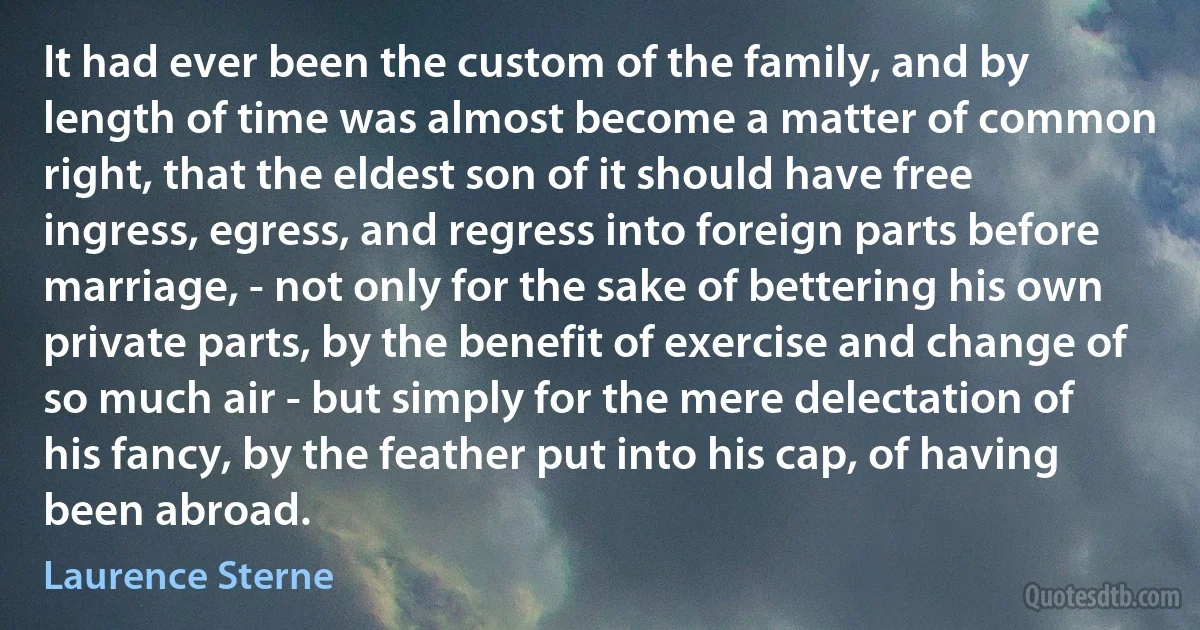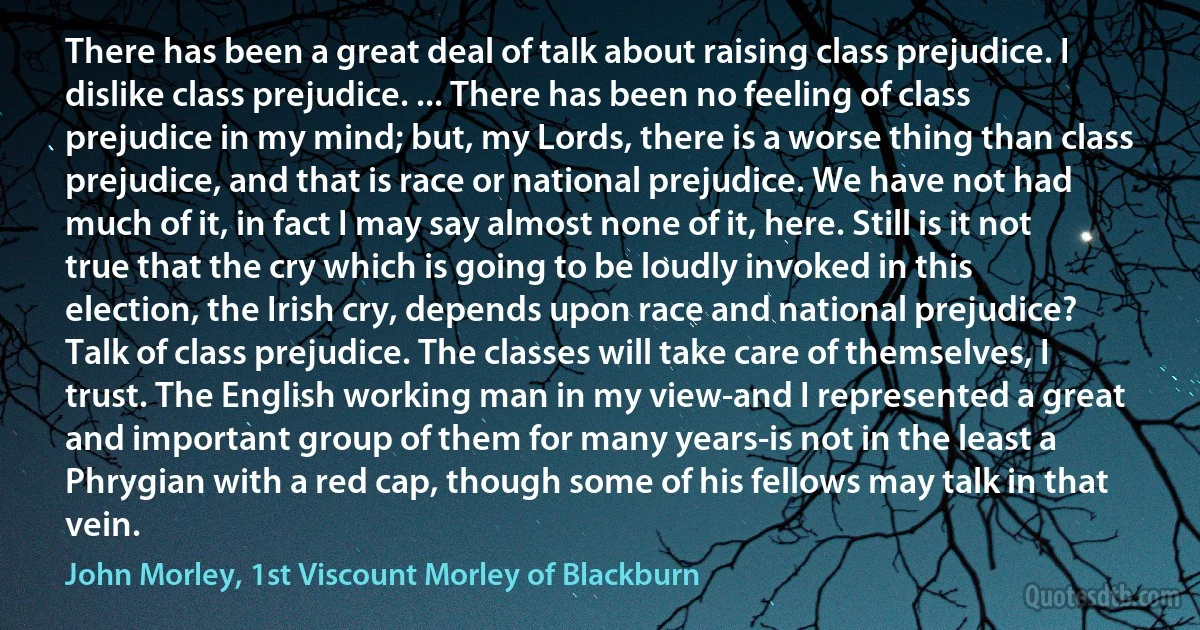Cap Quotes - page 2
The Machine Age's commitment to cause and effect was the source of many dilemmas, including the one involving free will. At the turn of the century the American philosopher E. A. Singer, Jr., showed that science had, in effect, been cheating. It was using two different relationships but calling both cause and effect. He pointed out, for example, that acorns do not cause oaks because they are not sufficient, even though they are necessary, for oaks. An acorn thrown into the ocean, or planted in the desert or an Arctic ice cap does not yield an oak. To call the relationship between an acorn and an oak ‘probabilistic' or ‘non deterministic causality,' as many scientists did, was cheating because it is not possible to have a probability other than 1.0 associated with a cause; a cause completely determines its effect. Therefore, Singer chose to call this relationship ‘producer-product' and to differentiate it from cause-effect.

Russell L. Ackoff
The artist's studio will be like a glass-bell or a hollow crystal. The painter himself must be white, which is to say, without tragedy or sorrow. The pallet must be of glass; the brush must be square and hard, dust-free and as immaculate as a surgical instrument. Doubtless there is much to learn from a medical laboratory... The studio of the modern painter must reflect the ambiance of mountains which are nine thousand feet high and topped with a eternal cap of snow. There the cold kills the microbes.

Theo van Doesburg
Going to Bits. This phrase me to day and is indeed the one I have been looking for; not tragic, not mortal disintegration; only a central weakness which prevents me from concentrating or settling down I have so wanted to write and write ahead. The phrase "obligatory creation" has haunted me. I have so wanted to get out of my morning bath promptly: have decided to do so beforehand, and have then lain in it as usual and watched myself not getting out. It looks as if there is a physical as well as a moral break in the orders I send out. I have plenty of interesting thoughts but keep losing them like the post cards I have written, or like my cap. I can't clear anything up yet interrupt a 'good read' in order to clear up. I hope tomorrow to copy out a piece of someone else's prose: it is the best device known to me for taking one out of inself, Plunge into anothers minutiae.'

E. M. Forster
The London office of the International Council for University Development was in Queen Street. Edwin hesitated outside, adjusting his cap, tightening the knot of his tie, smoothing his pyjama collar. The portals, a naked sculptural group above them emblematic of the Tutorial System, were designed to intimidate. The doors were all glass and hence appeared to be ever-open; this again must be emblematic of something.

Anthony Burgess
The greater part of the time I spent, when I talked at all, talking to men. I liked to take luncheon in some pub or other, sitting on a high stool at the snack-counter, barons of beef, hams, salads and dishes of pickle spread before me, the server in his tall white cap carving with skill. Other male eaters would be wedged against me, champing over newspapers, and there were a peculiar animal content in being among warm silent men, raising glasses in smacking silent toasts to themselves, the automatic ‘ah' after the draught, the forkful of red beef and mustard pickle. Sitting with my gin or whisky afterwards I would often manage to get into conversation with some lonely man or other – usually an exile like myself – and the talk would be about the world, air-routes and shipping-lines, drinking-places thousands of miles away. Then I felt happy, felt I had come home, because home to people like me is not a place but all places, all places except the one we happen to be in at the moment.

Anthony Burgess
Pleasure, the outer edge of ecstasy, was in the dour days of Protestantism, considered sinful in itself, wherever gained; Rome held specifically that any or all sexual pleasure was sinful. And for all this capped volcano produced in terms of bridges and houses, factories and bombs, it gouted from its riven sides a frightful harvest of neurosis. And even where a nation officially discarded the church, the same repressive techniques remained, the same preoccupation with doctrine, filtered through the same mesh of guilt. So sex and religion, the real meaning of human existence, ceased to be meaning and became means; the unbridgeable hostility between the final combatants was the proof of the identity of their aim-the total domination, for the ultimate satisfaction of the will to superiority, of all human minds.

Theodore Sturgeon
I think the Kennedy-Johnson tax cut was a marvelous success in 1964. It was too bad it was not implemented a little sooner, and Kennedy died, of course. After that, Johnson dallied for a while about raising taxes to pay for the war in Vietnam. The stimulus did not get reversed until the tax increase and expenditure cap of 1969, and that had a quick effect once it was enacted. As you know, we had a recession in 1969–1970.

Lawrence Klein
I hired a good carriage and had myself driven to Menton, a delightful outing of several hours. Menton is wonderful and is in a splendid setting. I walked to Cap Martin, a famous spot between Menton and Monte Carlo. I saw two motifs there that I want to paint because they are so different from things here, where the sea plays no big part in my studies, where the sea plays no big plays no big part in my studies.

Claude Monet
'Twas the saying of [Georgias Leontinus apud Arist. Rhetor. lib. 3. cap. 18... which the Translator renders, Seria Risu, Risum Seriis discutere] an ancient sage that humour was the only test of gravity, and gravity of humour. For a subject which would not bear raillery was suspicious; and a jest which would not bear a serious examination was certainly false wit.

Anthony Ashley-Cooper, 3rd Earl of Shaftesbury
If I were so time-poor as to have only one day to spend in Yosemite I should start at daybreak, say at three o'clock in midsummer, with a pocketful of any sort of dry breakfast stuff, for Glacier Point, Sentinel Dome, the head of Illilouette Fall, Nevada Fall, the top of Liberty Cap, Vernal Fall and the wild boulder-choked River Cañon.

John Muir



